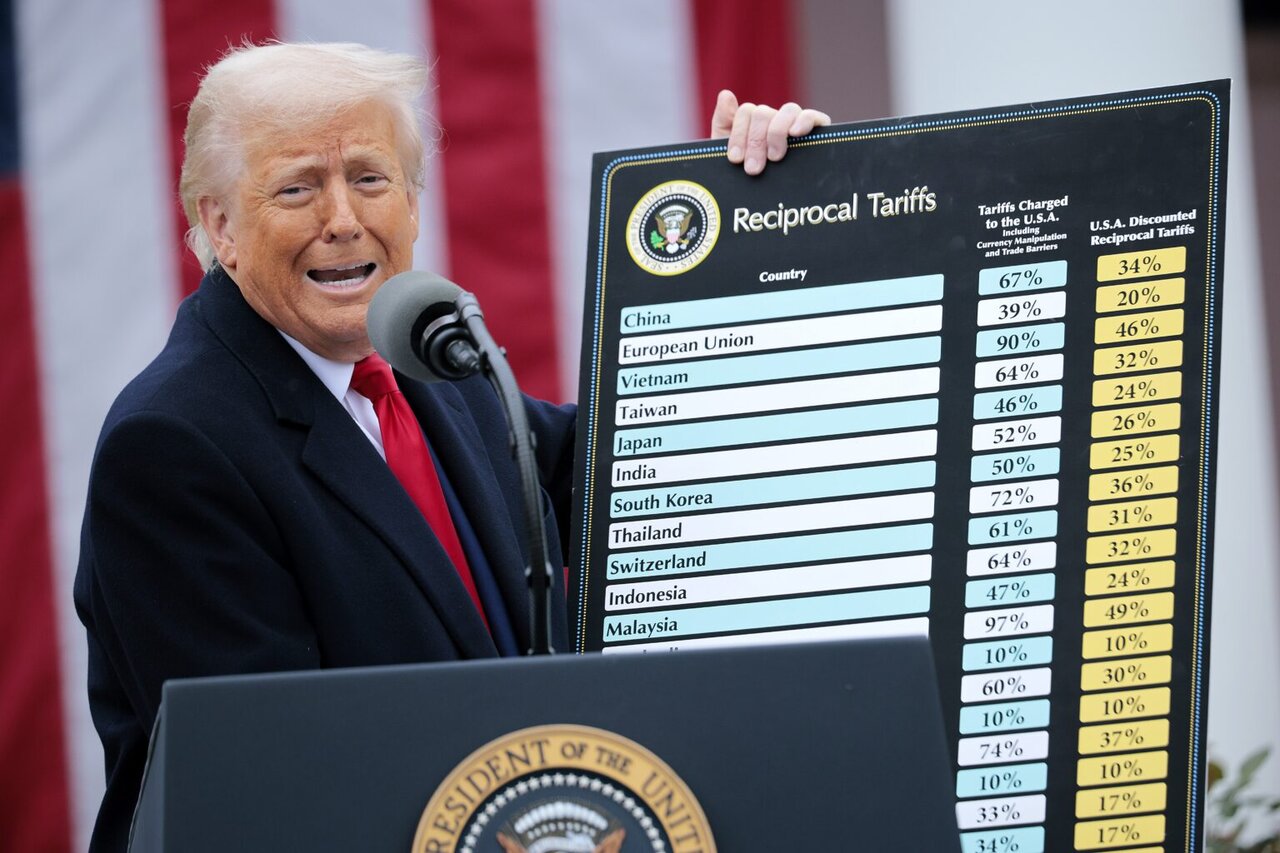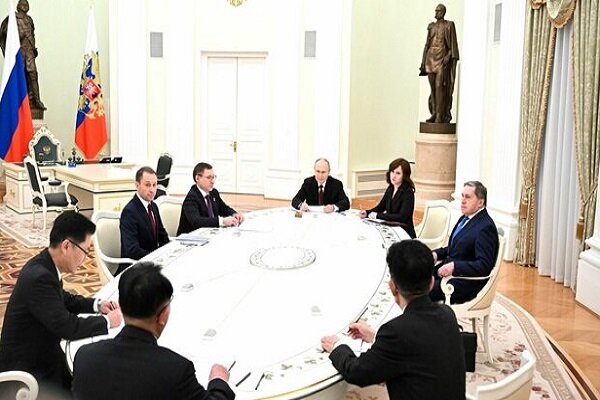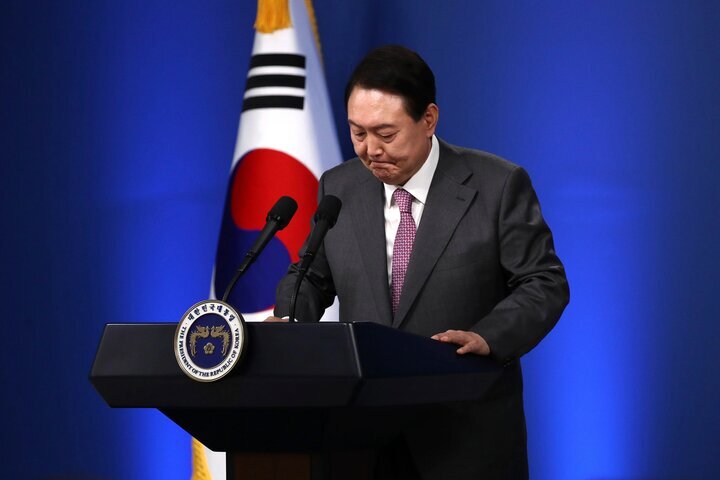Trump Unveils Bold New Tariffs: A Gamble on Inflation and Potential Trade Wars
In a bold move that has sent shockwaves through the global economy, President Donald Trump announced new tariffs on various trading partners, which could significantly reshape international trade dynamics. The implementation of a 34% tax on imports from China and a 20% tariff on goods from the European Union threatens to dismantle existing trade agreements and could lead to broader trade wars.
During his Rose Garden announcement, Trump stated that the elevated tariff rates would be applied to numerous nations that maintain substantial trade surpluses with the United States. He justified this action by declaring it an economic emergency, introducing a baseline import tax of 10% on all countries. The president emphasized that these tariffs aim to revitalize domestic manufacturing and combat what he described as decades of economic exploitation, stating, “our country has been looted, pillaged, raped and plundered” by other nations.
This historic tax hike could force a significant transformation in the global economic landscape. Middle-class essentials like housing, automobiles, and clothing may see price increases, causing a painful adjustment for many American consumers. The tariffs could disrupt long-standing economic alliances that were established to promote peace and stability worldwide.
Trump asserted that the tariffs would generate hundreds of billions in new revenue for the U.S. government, claiming that “taxpayers have been ripped off for more than 50 years.” He declared a national economic emergency to implement these tariffs, which he believes will bring factory jobs back to the United States. However, the potential for a sudden economic slowdown looms, as consumers and businesses may face steep price hikes.
The president’s action also fulfills a key campaign promise regarding what he refers to as “reciprocal” tariffs. He enacted this without congressional approval, utilizing the 1977 International Emergency Powers Act. However, this unilateral approach has raised concerns among some Republican senators from agricultural and border states regarding the long-term impacts of the tariffs. Following the announcement, U.S. stock market futures experienced a sharp decline, reflecting fears of an economic downturn.
According to analysts from the Cato Institute, “With today’s announcement, U.S. tariffs will approach levels not seen since the Smoot-Hawley Tariff Act of 1930, which incited a global trade war and deepened the Great Depression.” The new tariffs will predominantly target foreign entities that export more goods to the U.S. than they import. The administration calculated its tariff rates to generate revenue equivalent to the trade imbalances with these nations, subsequently halving the rates to what they presented as “very kind.”
The White House indicated that these tariffs were a response to a staggering $1.2 trillion trade imbalance in the previous year. Officials suggested that it might take extensive negotiations from other countries to reduce the new tariffs, raising concerns about potential retaliatory tariffs that could exacerbate the situation.
Olu Sonola, head of U.S. economic research at Fitch Ratings, noted that the average tariff rate imposed by the United States could soar to approximately 22%, up from 2.5% in 2024. He cautioned that “many countries will likely end up in a recession” if these tariffs persist over time. The new tariffs would compound previous announcements of a 25% tax on auto imports, alongside levies against countries like China, Canada, and Mexico, as well as expanded penalties on steel and aluminum.
Canada and Mexico will not face increased rates on existing tariffs, as Trump aims to curb illegal immigration and drug trafficking. Goods compliant with the USMCA North American trade pact will be excluded from these new tariffs. However, the 20% tariff on imports from China associated with fentanyl production will stack onto the previously announced 34% tariff.
Despite growing concerns regarding the impact of these tariffs on the economy, the administration remains steadfast. Senior officials, speaking under anonymity, projected that the new tariffs would yield significant annual revenue. The 10% baseline rate is intended to ensure compliance, while the higher rates are based on trade deficits with other nations.
The implementation timeline is as follows: the 10% rate will begin on Saturday, while the elevated rates will take effect starting on April 9. Trump has also decided to eliminate the tariff exemptions for imports from China valued at $800 or less, with plans to extend this to other nations once federal resources are certified as adequate.
As discussions of broader tariffs circulate, various analyses predict that the economy could suffer from higher prices and stagnated growth. Trump’s authority to impose these tariffs without congressional approval has opened the door for criticism from Democratic lawmakers, who argue that such decisions should not be made unilaterally. Representative Suzan DelBene (D-Wash.) criticized the administration, saying, “This is a massive tax increase on American families, and it’s without a vote in Congress.”
Even some Republicans, who typically support Trump’s policies, have expressed concerns about the potential economic disruption caused by these tariffs. House Speaker Mike Johnson (R-La.) acknowledged the situation, stating, “We’ll see how it all develops. It may be rocky in the beginning. But I think that this will make sense for Americans and help all Americans.”
Many of the United States’ long-time trading partners are now preparing for retaliatory measures. Canada has already implemented countermeasures in response to the tariffs tied to fentanyl trafficking, while the European Union has imposed taxes on U.S. goods worth approximately €26 billion ($28 billion), including bourbon, leading Trump to threaten a 200% tariff on European alcohol.
The Chinese government responded cautiously, stating, “China believes that protectionism leads nowhere, and trade and tariff wars have no winners.” Canadian Prime Minister Mark Carney remarked that Trump’s new tariffs would “fundamentally change the international trading system,” emphasizing the necessity for countermeasures.
In the business sector, companies like Basic Fun, known for iconic toys, are scrambling to adapt to the impending price increases. CEO Jay Foreman noted that the price of popular toys like the Tonka Mighty Dump Truck would rise significantly due to the new tariffs.
In conclusion, the ramifications of President Trump’s new tariffs are immense and far-reaching. As the global economy braces for potential upheaval, the next steps taken by both the U.S. government and its trading partners will be crucial in determining the future of international trade relations.






